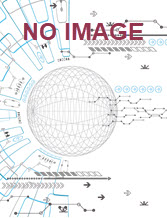
Cambridge encyclopedia of human evolution
Nhà xuất bản : Cambridge Univ. Press
Năm xuất bản : 1992
Nơi xuất bản : New York
Mô tả vật lý : 506 p.
ISBN : 0 521 32370 3
Số phân loại : 579.2
Chủ đề : 1. human evolution -- encyclopedias. 2. Thuyết tiến hóa.
Thông tin chi tiết
| Tóm tắt : | The book is a wide-ranging introduction to the human species that places modern humans in evolutionary perspective. Its content is divided into 10 parts. *) Part 1 presents patterns of primate evolution: the nature of evolution, classification and evolutionary relationships, non-human primates and conservation of primates. *) Part 2 presents the life of primates: body size and energy requirements, human adaptations to the physical environment, differences between the sexes, jaws and teeth, diets and guts, selecting and processing food, human diet and subsistence, primate locomotion and posture, human locomotion, primate reproduction, hormones and sexual behaviour, life-history patterns, human growth and development. *) Part 3 deals with the brain and language: Primate brains and senses, the human brain, vocal communication by non-human primates, biological aspects of language, human speech and language, language training of apes. *) Part 4 discusses the primate social organization: social behaviour and evolutionary theory, mating and parental care, home range and territory, smell as a signal, facial patterns as signals and masks. *) Part 5 delves into human evolution in a geological context: land movements and species disposal, climatic change in the past, methods of dating, fossil deposits and their investigation, reconstructing past environments. *) Part 6 provides the primate fossil record: the fossil history of primates, evolution of New World monkeys, evolution of Old World monkeys, evolution of apes, evolution of australopithecines, evolution of early humans. *) Part 7 presents primate genetics and evolution: principles of geneyics, genetic diversity in humans. *) Part 8 provides genetic clues of relatedness: chromosomal evolution in primates. *) Part 9 presents early human behaviour and ecology: the hominid way of life, evolution of human manipulation, tools - the paleolithic record, origine of agriculture, domestic of animals. *) Part 10 covers human populations, past and present: the dispersion of modern humans, people and disease, fertility control: past, present and future, tribal peoples in the modern world. the book end with a conclusion which presents the evolutionary future of humankind |
Thông tin dữ liệu nguồn
| Thư viện | Ký hiệu xếp giá | Dữ liệu nguồn |
|---|---|---|
 Thư viện đại học Cần Thơ
Thư viện đại học Cần Thơ
|
0164 |
https://lrcopac.ctu.edu.vn/pages/opac/wpid-detailbib-id-17926.html |






 Đại học Công nghệ - ĐHQGHN
Đại học Công nghệ - ĐHQGHN  Đại học Giáo dục - ĐHQGHN
Đại học Giáo dục - ĐHQGHN  Đại học khoa học tự nhiên - ĐHQGHN
Đại học khoa học tự nhiên - ĐHQGHN  Đại học Khoa học Xã hội và Nhân văn - ĐHQGHN
Đại học Khoa học Xã hội và Nhân văn - ĐHQGHN  Đại học Kinh tế - ĐHQGHN
Đại học Kinh tế - ĐHQGHN  Đại học Ngoại ngữ - ĐHQGHN
Đại học Ngoại ngữ - ĐHQGHN  Đại học quốc gia Hà Nội
Đại học quốc gia Hà Nội  Đại học Y - Dược - ĐHQGHN
Đại học Y - Dược - ĐHQGHN  Học Viện Hàng Không Việt Nam
Học Viện Hàng Không Việt Nam  Thư viện Huyện Bình Chánh - TVKHTH TP.HCM
Thư viện Huyện Bình Chánh - TVKHTH TP.HCM  Thư viện huyện Bình Minh - TV Vĩnh Long
Thư viện huyện Bình Minh - TV Vĩnh Long  Thư viện huyện Bình Tân - TV Vĩnh Long
Thư viện huyện Bình Tân - TV Vĩnh Long  Thư viện Huyện Cần Giờ - TVKHTH TP.HCM
Thư viện Huyện Cần Giờ - TVKHTH TP.HCM  Thư viện Huyện Củ Chi - TVKHTH TP.HCM
Thư viện Huyện Củ Chi - TVKHTH TP.HCM  Thư viện Huyện Hóc Môn - TVKHTH TP.HCM
Thư viện Huyện Hóc Môn - TVKHTH TP.HCM  Thư viện huyện Long Hồ - TV Vĩnh Long
Thư viện huyện Long Hồ - TV Vĩnh Long  Thư viện huyện Mang Thít - TV Vĩnh Long
Thư viện huyện Mang Thít - TV Vĩnh Long  Thư viện Huyện Nhà Bè - TVKHTH TP.HCM
Thư viện Huyện Nhà Bè - TVKHTH TP.HCM  Thư viện huyện Tam Bình - TV Vĩnh Long
Thư viện huyện Tam Bình - TV Vĩnh Long  Thư viện huyện Trà Ôn - TV Vĩnh Long
Thư viện huyện Trà Ôn - TV Vĩnh Long  Thư viện Khoa học Tổng hợp TP.HCM
Thư viện Khoa học Tổng hợp TP.HCM  Thư viện quận 1 - TVKHTH TP.HCM
Thư viện quận 1 - TVKHTH TP.HCM  Thư viện quận 10 - TVKHTH TP.HCM
Thư viện quận 10 - TVKHTH TP.HCM  Thư viện quận 11 - TVKHTH TP.HCM
Thư viện quận 11 - TVKHTH TP.HCM  Thư viện quận 12 - TVKHTH TP.HCM
Thư viện quận 12 - TVKHTH TP.HCM  Thư viện quận 2 - TVKHTH TP.HCM
Thư viện quận 2 - TVKHTH TP.HCM  Thư viện quận 3 - TVKHTH TP.HCM
Thư viện quận 3 - TVKHTH TP.HCM  Thư viện quận 4 - TVKHTH TP.HCM
Thư viện quận 4 - TVKHTH TP.HCM  Thư viện quận 5 - TVKHTH TP.HCM
Thư viện quận 5 - TVKHTH TP.HCM  Thư viện quận 6 - TVKHTH TP.HCM
Thư viện quận 6 - TVKHTH TP.HCM  Thư viện quận 7 - TVKHTH TP.HCM
Thư viện quận 7 - TVKHTH TP.HCM  Thư viện quận 8 - TVKHTH TP.HCM
Thư viện quận 8 - TVKHTH TP.HCM  Thư viện quận Bình Tân - TVKHTH TP.HCM
Thư viện quận Bình Tân - TVKHTH TP.HCM  Thư viện quận Bình Thạnh - TVKHTH TP.HCM
Thư viện quận Bình Thạnh - TVKHTH TP.HCM  Thư viện quận Gò Vấp - TVKHTH TP.HCM
Thư viện quận Gò Vấp - TVKHTH TP.HCM  Thư viện quận Phú Nhuận - TVKHTH TP.HCM
Thư viện quận Phú Nhuận - TVKHTH TP.HCM  Thư viện quận Tân Bình - TVKHTH TP.HCM
Thư viện quận Tân Bình - TVKHTH TP.HCM  Thư viện quận Tân Phú - TVKHTH TP.HCM
Thư viện quận Tân Phú - TVKHTH TP.HCM  Thư viện Quốc gia Việt Nam
Thư viện Quốc gia Việt Nam  Thư viện thành phố Thủ Đức (cơ sở 1) - TVKHTH TP.HCM
Thư viện thành phố Thủ Đức (cơ sở 1) - TVKHTH TP.HCM  Thư viện thành phố Thủ Đức (cơ sở 2) - TVKHTH TP.HCM
Thư viện thành phố Thủ Đức (cơ sở 2) - TVKHTH TP.HCM  Thư Viện Tỉnh An Giang
Thư Viện Tỉnh An Giang  Thư viện tỉnh Vĩnh Long
Thư viện tỉnh Vĩnh Long  Tổ chức y tế thế giới
Tổ chức y tế thế giới  Trung tâm giáo dục quốc phòng và An ninh - ĐHQGHN
Trung tâm giáo dục quốc phòng và An ninh - ĐHQGHN  Trung tâm Hỗ trợ Sinh viên - ĐHQGHN
Trung tâm Hỗ trợ Sinh viên - ĐHQGHN  Trường Đại học Luật - ĐHQGHN
Trường Đại học Luật - ĐHQGHN  Trường Khoa học liên ngành và nghệ thuật - ĐHQGHN
Trường Khoa học liên ngành và nghệ thuật - ĐHQGHN  Trường Quản trị và Kinh doanh - ĐHQGHN
Trường Quản trị và Kinh doanh - ĐHQGHN  Viện Công nghệ Thông tin - ĐHQGHN
Viện Công nghệ Thông tin - ĐHQGHN  Viện Đảm bảo chất lượng giáo dục - ĐHQGHN
Viện Đảm bảo chất lượng giáo dục - ĐHQGHN  Viện Quốc tế Pháp ngữ - ĐHQGHN
Viện Quốc tế Pháp ngữ - ĐHQGHN  Viện Tài nguyên và Môi trường - ĐHQGHN
Viện Tài nguyên và Môi trường - ĐHQGHN  Viện Vi sinh vật và Công nghệ Sinh học - ĐHQGHN
Viện Vi sinh vật và Công nghệ Sinh học - ĐHQGHN  Viện Việt Nam học và Khoa học phát triển - ĐHQGHN
Viện Việt Nam học và Khoa học phát triển - ĐHQGHN